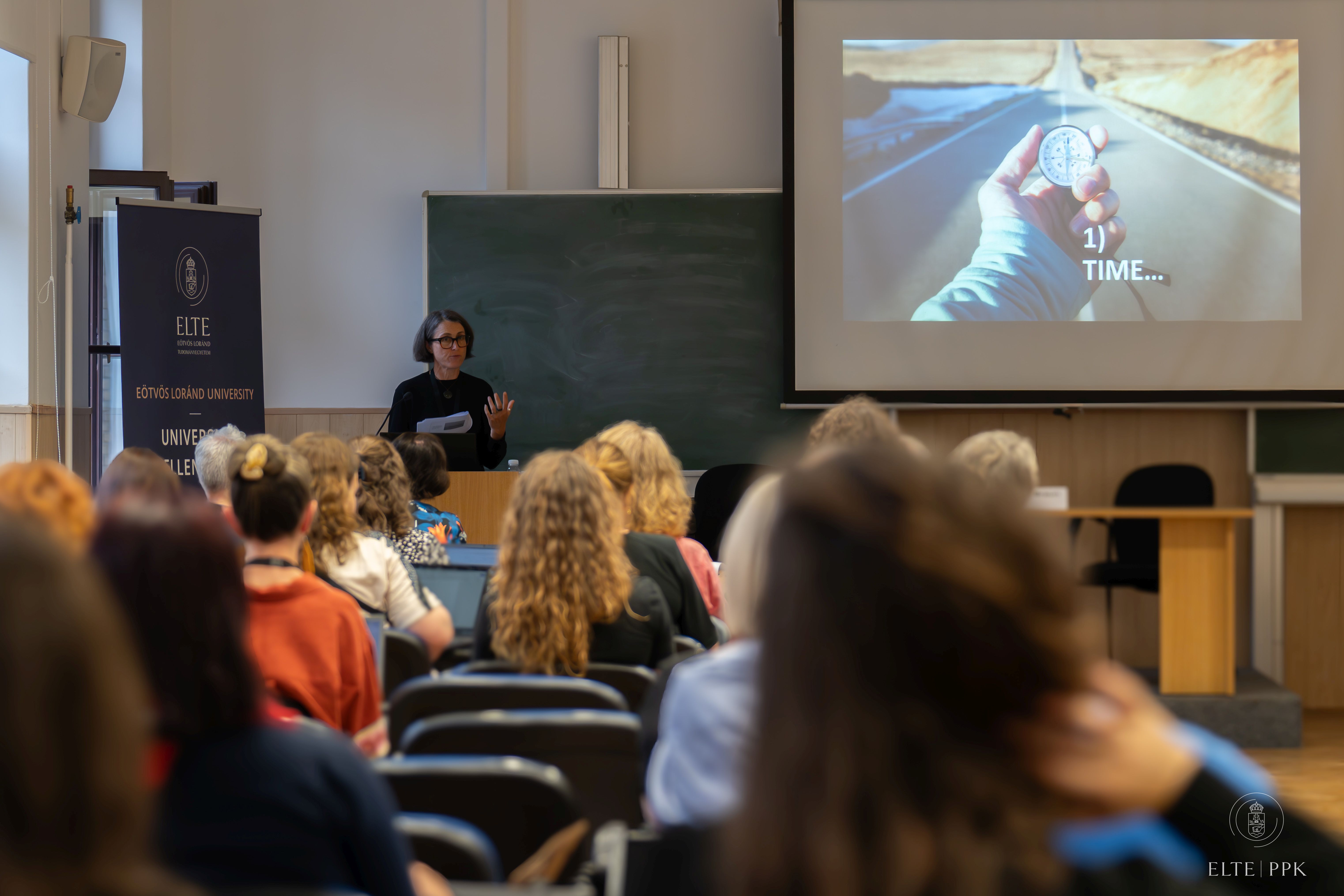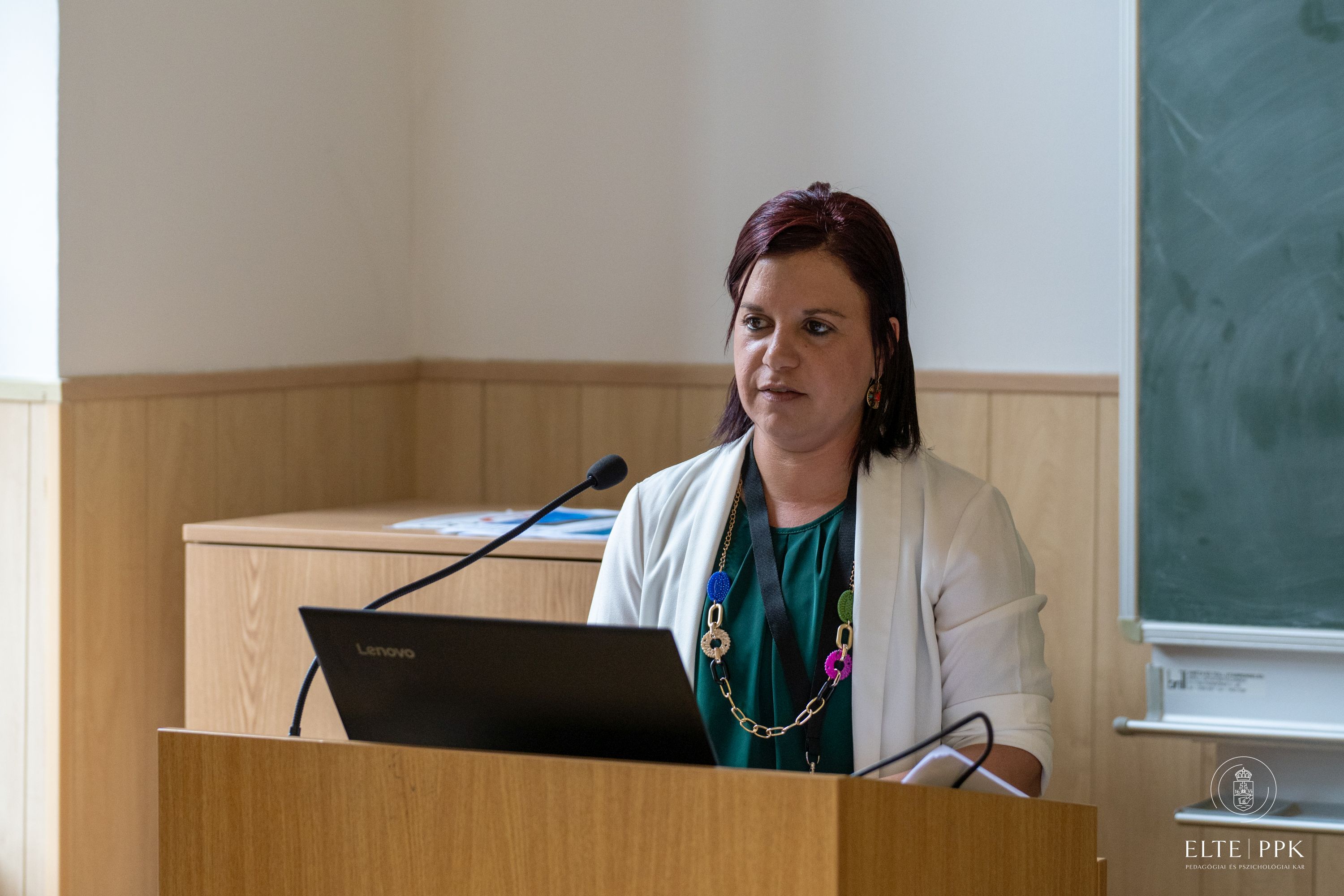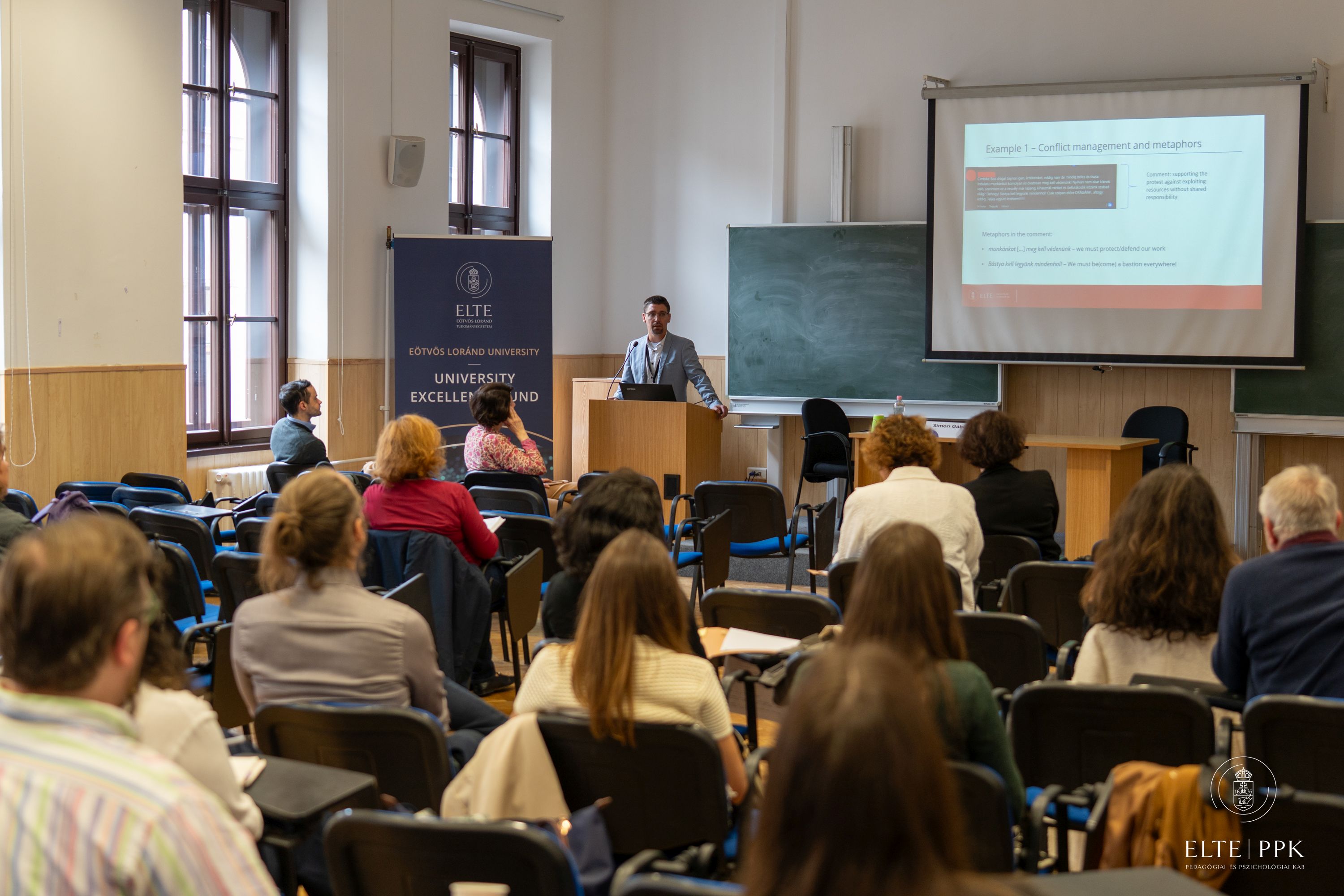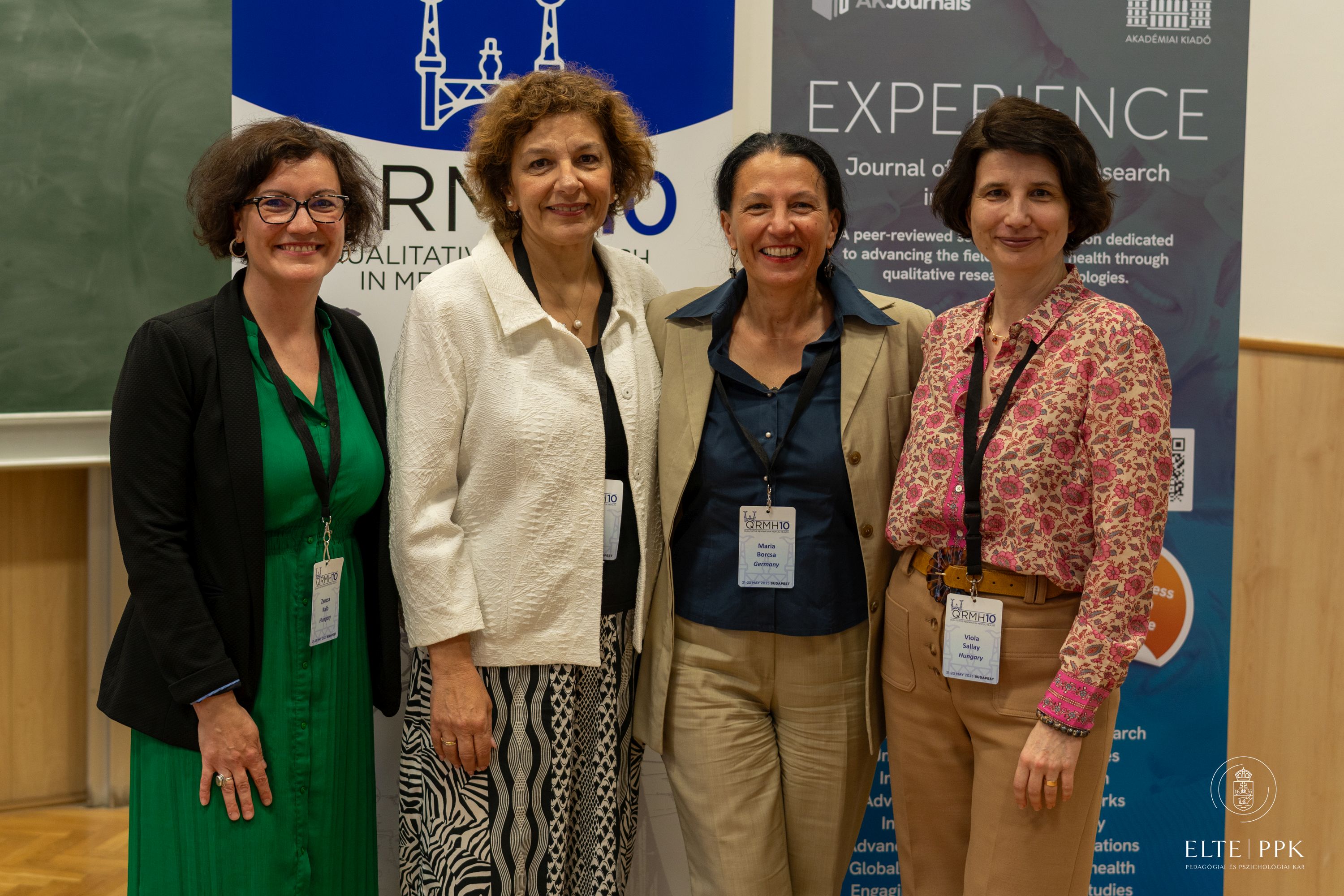Personal stories and qualitative methods in the service of mental health

The QRMH10 international academic conference was held in Budapest on 21-23 May 2025, attracting nearly 100 participants from around the world. The event’s audience consisted of researchers, clinicians, doctoral students, and professionals interested in qualitative research on mental health.
The challenges of reflexive thematic analysis
Virginia Braun (University of Auckland), whose 2006 study, co-authored with Victoria Clarke, is the third most cited scientific publication in the world according to Nature’s 2025 rankings, was an honoured guest at the conference. Her participation at the Budapest-based conference was supported by ELTE’s University Excellence Fund.

During her workshop entitled “Making the Best and Avoiding the Worst of Thematic Analysis”, Virginia Braun discussed current issues in reflective thematic analysis (TA). She emphasised that one of the cornerstones of high-quality qualitative research is methodological congruence, i.e. ensuring that research questions, philosophical foundations, data analysis and related reflections are in line with each other. She highlighted the role of researcher presence in qualitative analysis as well as the importance of deepening self-reflection, transparent documentation and “becoming a good enough researcher”. The presentation not only provided methodological depth but also personal and professional inspiration for the participants.
Postpartum psychosis
In her plenary lecture entitled “Untold Motherhood Encounters: An Autoethnographic Account of Postpartum Psychosis”, Debbie Atanasio (University of Malta) shared her own experience of postpartum psychosis from an autoethnographic perspective. Her presentation sensitively highlighted the shortcomings of the mental health care system, particularly with regard to support for new mothers. Atanasio argued that there is a need for family-friendly forms of care in many countries, including Malta, and for the recognition and integration of family therapists and experiential experts.

Transdisciplinarity in mental health research
The methodological diversity of the conference was reflected by the participation of linguist Gábor Simon, who held a workshop on the metaphorical analysis of pre-suicide communication and, in his plenary presentation, explored the role of metaphors in mental health. The list of plenary speakers was further elevated by Anssi Peräkylä (University of Helsinki), who analysed the psychotherapeutic context of social interactions and emotions.

Shared journeys in a troubled world
The conference’s motto, “Shared Journeys in a Troubled World: Interweaving Mental Health and Personal Experience”, placed the focus on the interweaving of individual experience and qualitative research on mental health, with particular emphasis on reflexivity, methodological pluralism, and the inclusion of social context.
Over the three-day event, nearly 80 oral presentations were given on such diverse topics as family and relationship mental health, women’s and mothers’ well-being, migration and trauma, professional identity in crisis situations, and the role of digital tools in community mental health. The detailed programme is available here.
EXPERIENCE – a new journal in qualitative research
The conference also saw the launch of EXPERIENCE – Journal of Qualitative Research in Mental Health a new peer-reviewed scientific journal focusing specifically on qualitative research in mental health. The first special issue of the journal, published by Akadémiai Kiadó, will consist of a collection of studies from QRMH10 participants. The editors – Zsuzsa Kaló (ELTE PPK) and Viola Sallay (SZTE) – accept manuscripts until 30 June 2025.
 The main organisers of the QRMH10 conference were Zsuzsa Kaló (ELTE PPK, Department of Counselling and School Psychology), Viola Sallay (SZTE and Sigmund Freud Private University), Angela Abela (University of Malta) and Maria Borcsa (Germany). SYMVOLI – Conference & Cultural Management provided logistical and organisational support for the event. Psychology students studying at ELTE PPK, coordinated by Orsolya Kovács (ELTE PPK), also contributed to the organisation of the conference with their voluntary work.
The main organisers of the QRMH10 conference were Zsuzsa Kaló (ELTE PPK, Department of Counselling and School Psychology), Viola Sallay (SZTE and Sigmund Freud Private University), Angela Abela (University of Malta) and Maria Borcsa (Germany). SYMVOLI – Conference & Cultural Management provided logistical and organisational support for the event. Psychology students studying at ELTE PPK, coordinated by Orsolya Kovács (ELTE PPK), also contributed to the organisation of the conference with their voluntary work.

